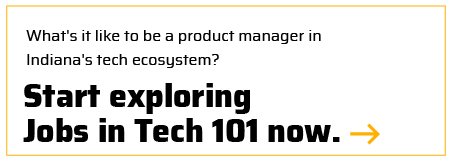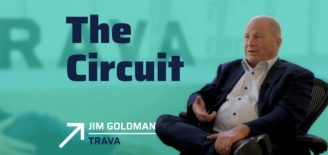How product managers are evolving without a traditional career path
Product managers are increasingly becoming more important roles in technology companies. From helping the engineers figure out how to refine and hone features to communicating with clients about their experience with the product, product managers are responsible for the entire strategy and roadmap of a product.

Ben PippengerVP Product, Zylo
“You sit between a really technical audience (the developers and the engineers) that are actually writing code for the product, and a not-so-technical audience, which is your end customer,” says Ben Pippenger, VP of Product for Zylo.
“You’re sort of the translator between the two, where you get to work with the customers to understand what they’re trying to do, take that back, and then really think about how you can solve that problem in a scalable way that works for that customer as well as a lot of your customer base.”
From college to career
What’s interesting about product managers, however, is that no one goes to school to become a product manager ― at least, not yet. As technology companies evolved over the past few decades, the role of a product manager evolved without a traditional career path.

Josh MedleyProduct Manager, PERQ
“To my knowledge, I don’t believe there are any universities offering product management degrees, which is why — more times than not — people don’t set out to become product managers; they kind of ‘fall’ into the position,” says Josh Medley, Product Manager at PERQ. “Typically, they have some background in engineering, UX, or client support and then make the leap to product management because of their technical expertise on the product.”
Graduating from Miami University of Ohio, Ben’s degree was in management information systems (MIS). “I always knew I liked computers,” says Ben. “College taught me that I didn’t want to be an engineer, but I liked how products came together and how you can use technology to solve hard problems. MIS was useful because it was really a computer science degree in the business school.”
“My path to product management started off at ExactTarget,” says Ben. “I was hired there way back in 2005 as a technical consultant. My job was essentially to take our product and implement it for our customers.”
While his path started as a technical product consultant, Ben has seen people enter the field in a variety of ways. “Sometimes, they’re an engineer who doesn’t necessarily want to code anymore, they want to do more on the product side of things, and they’re good with customers. That’s one side.”
“I do see some folks from UX and design moving into product roles. Those individuals have more of an eye for design,” says Ben. “Then I see folks like me that maybe weren’t either, but they’re technical in nature, and they’ve been working closely with customer-delivering services.”
Skills assessment for product managers
When thinking about the most important qualities, Ben says product managers need two primary skills: good communication and technical understanding. “You have to be a really good communicator. You have to be able to talk to customers to understand what they need as well as the engineers,” says Ben. “But it’s also important to be semi-technical; you have to take what was communicated and translate that into the actual software.”
Josh, on the other hand, focuses on the vision. “The most important quality of a good product manager is the ability to sell a vision. Product management’s job is to ‘rally the troops’ (UX, development, QA, product marketing, etc.) behind a singular mission,” says Josh. “You have to get everybody on the same page in regards to what we’re building and, more importantly, what we’re not building.”
While neither were aware of any product management degrees offered in Indianapolis currently, both Ben and Josh believe they’re needed. “As the Indy tech scene and need for product managers continues to grow, there is a great opportunity for one of our local universities to offer such a program,” says Josh.
“I feel like realistically this, at least this far in my career, is as close to an inventor as I’ve gotten to,” says Ben. “As a product manager, while it’s not just you inventing this thing, you take inputs from a whole bunch of different people —whether it’s the leadership team that you’re working with, your customers, or your competitors to see what they’re doing.”
At the end of the day, product management is a very important role in the tech ecosystem. Indy technology companies would be well-served by finding and encouraging local universities to develop product management programs to support their growing need for these skills.
Looking to launch your career in product management? Visit our Job Board to apply for your next career path.







































